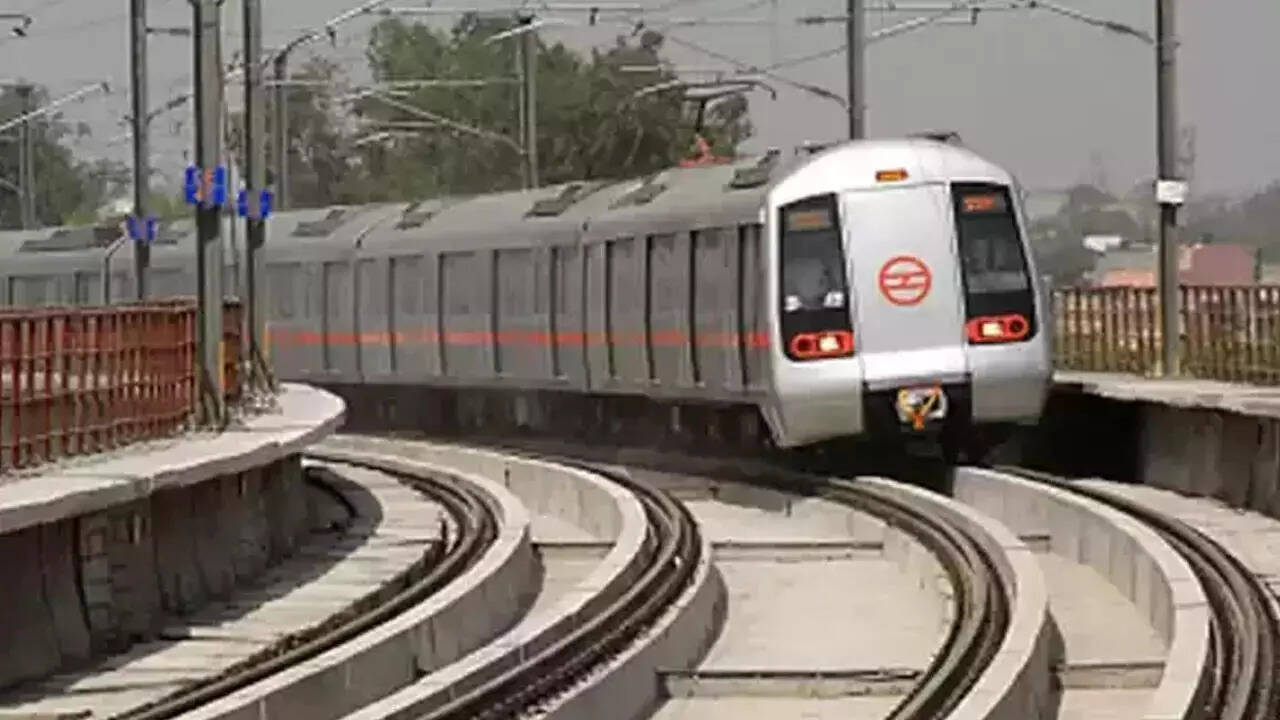
A passenger travelling by Delhi Metro instead of a car saves almost 32.4 grams of carbon dioxide (CO2) per kilometre.
Thus, a ride from Janakpuri West metro station on Blue Line to Hindon River metro station on Red Line would save about 840 grams of CO2 emissions while a one-way metro journey from MG Road station to Samaypur Badli station would save 1,420 grams of CO2.
From Thursday, QR-coded tickets – both paper- and mobile-based – will show commuters the amount of CO2 saved every time they ride the metro. Delhi Metro Rail Corporation (DMRC) on Wednesday launched CarbonLite Metro Travel, an initiative to educate passengers about their significant contribution towards reducing carbon emissions by choosing metro trains, based on research done by The Energy and Resource Institute (TERI).
The details on carbon emissions are currently unavailable for Delhi metro card users. The initiative aims to ensure widespread awareness of the positive impact of sustainable public transport.
“In line with India’s aim of achieving net zero emissions by 2070, the initiative intends to highlight the pivotal role each citizen plays in addressing the pressing issue of climate change through their transportation choices. DMRC is possibly the world’s first metro service to introduce such a feature in its tickets,” said Anuj Dayal, principal executive director, corporate communications, DMRC.
He added that the CO2 savings will be displayed and accumulated in the user’s DMRC mobile app for all journeys undertaken by the passenger, further enhancing the ‘feel-good factor’.
For this initiative, a study done by TERI estimated the net CO2 emissions per passenger-km by Delhi Metro and five motorised modes of road transport – bus, private car, cab/taxi, three-wheeler (auto-rickshaw) and two-wheeler.
“Delhi Metro’s continuous efforts in environmental preservation have earned it a reputation as a frontrunner in sustainability within the global transportation landscape. The corporation holds the distinction of being the world’s first rail-based organisation to accrue carbon credits for innovative initiatives like regenerative braking and modal shift strategies. Additionally, DMRC has achieved significant strides in harnessing solar energy, with an impressive total solar power generation capacity of approximately 50 MwP, further solidifying its position as a pioneer in the mass transit sector,” said Dayal.
The introduction of QR-coded tickets on both paper and mobile platforms earlier this year has been met with enthusiastic responses from passengers. The app-based QR code ticketing option, launched by DMRC in June, has already garnered about 4.7 lakh downloads.
“This will encourage passengers to choose an eco-friendly mode of transport over motorised vehicles, contributing to a cleaner and greener environment,” said DMRC.

